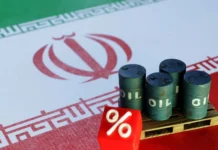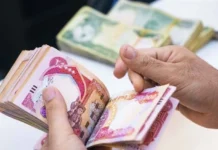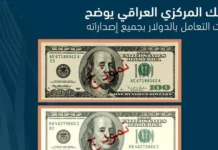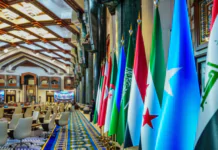Achievements And Challenges
Economic 07/20/2025 Yasser Al-Mutawali While the country is witnessing real achievements in various areas of the economic and service sectors, due to efficient reform policies and clear trends toward stimulating the economy and development, economists are busy these days searching for ways to confront the expected global financial crisis, which is a periodic crisis facing the global economy. Therefore, experts are seeking to mitigate its effects on the reality of the Iraqi economy.
Perhaps it is useful to emphasize that any warnings issued here and there must be taken into account and benefited from, to avoid the damage that may result from them.
Today, the International Monetary Fund (IMF) issued a warning regarding Iraq’s worsening fiscal deficit, due to objective reasons related to geopolitical changes taking place around the world, which have painful economic repercussions, according to its latest report this week.
Therefore, it is necessary to focus on stimulating income-generating productive sectors,
while reducing unnecessary expenditures in order to overcome the crisis phase and its usual cycle.
The IMF‘s warnings called on Iraq to review its spending policy and rationalize it with measures that are difficult to implement, as they raise complex social problems.
In order to preserve and sustain the achievements made, austerity measures must be taken, spending must be reduced, and rapid income-generating economic sectors must be stimulated and diversified.
Regardless of the accuracy of the warnings, it has become necessary not to ignore them and to take them seriously,because they are important indicators whose effects must be guarded against.
We see in them an opportunity for the government to implement more radical reforms in fiscal policy,
to confront the dire effects of the expected financial crisis.
Perhaps it is useful to point out that Iraq, as a rentier country, will be at the forefront of the countries affected and most affected, especially if oil prices fall below the hypothetical price planned for the budget.
This reality requires the government to review current spending plans, reduce all non-essential expenditures, and boost non-oil revenues by revising tax and customs duties, reforming the personal income tax, creating private sector jobs without relying on government jobs, and regulating the import of non-essential goods.
It is perhaps worth emphasizing once again that ignoring the warning, regardless of the accuracy of the information contained in the report,remains a matter that requires serious consideration. https://alsabaah.iq/117658-.html
Hard Currency Is Being Drained With The Blessing Of The National Bank. Experts Warn Of A Catastrophe That Will Cripple The Iraqi Economy.
Economy 2025-07-19 | 06:10 1,903 views Alsumaria News – Economic Bank’s monopoly
The National on dollar transfers has sparked widespread controversy in Iraqi economic and commercial circles, amid accusations that it dominates foreign currency sales and transfers, threatening the principle of fair competition and increasing pressure on the local market.
Observers believe this monopoly has contributed to rising exchange rates and limited options for traders and citizens.
Meanwhile, financial experts assert that the lack of effective oversight and the overlapping interests of influential parties have given the bank near-absolute control over the dollar’s movement.
Observers noted that almost complete monopoly “the National Bank, with the support of influential parties, was able to obtain near-exclusive control over foreign remittances from Iraq, while a number of Iraqi banks were restricted and barred from accessing the electronic remittance platform.”
He added, “This monopoly is not merely technical in nature, but is also due to pressure from political backgrounds and influential figures with ties to the bank’s senior management, raising concerns about administrative and financial corruption.”
The Impact Of Monopoly On The Market And Iraqis
This, according to experts, confirms the weak competitiveness of Iraqi banks.
Reducing the profit margin and development opportunities for local banks, due to their being barred from participating,weakens their ability to provide local services or improve their infrastructure.
It also leads to a deterioration in services for beneficiaries, as transfer and deposit transactions have been subject to repeated delays and postponements, substandard customer service, and complaints of electronic system outages and erratic transfers.
They continued, “The manipulation of remittances also leads to a drain on hard currency, as the National Bank is estimated to be transferring huge sums of dollars abroad, taking advantage of exchange rate differences and dollar auctions without adequate oversight.”
They noted that “there are huge economic losses estimated at billions of dinars annually
—such as 7.5 billion dinars stolen from Iraqi profits and sent directly to Amman
—that are draining the Jordanian economy.”
Dividend Distribution – Who Benefits?
The National Bank of Iraq (NBI) achieved huge profits following the acquisition; its net profit after tax for 2023 reached approximately 190 billion dinars, compared to 27.5 billion dinars in 2022.
Revenues from the currency window also increased 26-fold to approximately 93 billion dinars, 67% of which is transferred to non-Iraqi entities.
External destination: A large percentage of these profits go to Jordan, according to representatives and experts, and are added to the budgets of the parent companies, representing a clear drain on liquidity and foreign currency in excess of the local markets’ needs.
The Size Of The Monopoly And The Impact Of The Law
waived Article 107 of the Banking Law any limits on foreign investor ownership (up to 100%),
enabling foreign-owned banks to dominate, while such licenses are practically prohibited for Iraqi banks.
granted The Central Bank licenses and controlled currency auctions in a non-transparent manner, and
amended laws to support the interests of certain parties at the expense of national financial sovereignty.
Supervisory Calls
Observers called for “an urgent parliamentary investigation into the procedures that led to the
National Bank’s leadership, documenting financial transactions, identifying the parties involved, reviewing the banking law and amending Article 107 to end foreign control and enable Iraqi banks to compete, as well as abolishing the monopoly currency window and replacing remittance distribution with a transparent system managed by the government or a unified platform without the control of a private bank.”
They stressed the “need to refer the National Bank to direct oversight by the Central Bank, strengthen monitoring of transfers and the exchange rate, and impose penalties on violators.”
The National Bank of Iraq‘s ongoing monopoly over foreign remittances negatively impacts the national economy and leads to the transfer of huge profits abroad.
This has prompted calls for parliamentary action to investigate the matter through judicial and legislative means, as well as for fundamental reforms to regulatory institutions and the banking system. Experts stated that “Iraqi depositors are the losers in this financial game, while dinars and hard currencies are being siphoned off under the guise of legal transfers.”
https://www.alsumaria.tv/news/economy/534072/العملة-الصعبة-تُستنزف-بمباركة-المصرف-الأهلي-خبراء-يحذرون-من-كارثة-تشل
IMF: Iraq Has Maintained Stability And Inflation Is Low
July 19, 2025 Baghdad/Iraq Observer The International Monetary Fund confirmed on Saturday that
Iraq has succeeded in maintaining its internal stability despite regional tensions, while noting that the
inflation rate in Iraq has remained low.
The IMF stated in a report reviewed by Iraq Observer that “Iraq has succeeded in maintaining its internal stability despite regional tensions and unstable global conditions,” noting that “the inflation rate has remained low in Iraq,” stressing “the need to implement fundamental reforms to increase non-oil revenues and control the public wage bill,” indicating that “current and investment spending plans for 2025 should be reviewed.” He stressed that
“it is necessary and urgent to reform the public pension system by raising the retirement age and reducing the accumulation and replacement rates,” praising “the Central Bank of Iraq‘s success in fully transitioning to the new trade finance system and its contribution to narrowing the gap between the official and parallel exchange rates.”
The Fund stated that “the Central Bank of Iraq has begun studying reform options to strengthen the private banking sector,” stressing, “We encourage Iraq to accelerate its efforts to improve the issuance and collection of electricity bills.”
He explained that “progress has been made in implementing the National Anti-Corruption strategy and improving the Corruption Perceptions Index,” adding that “it is essential to focus on bridging the most pressing statistical gaps and integrating pilot initiatives.” https://observeriraq.net/صندوق-النقد-العراق-حافظ-على-استقراره-و/
Sources: US Sanctions Iraqi Telecom Company For Money Laundering
July 20, 2025 Last updated: July 20, 2025 Al-Mustaqilla/- Three informed sources, in addition to identical media reports, revealed that the United States has imposed a penalty on a prominent Iraqi telecommunications company, due to its involvement in money laundering and smuggling operations outside the country, in direct violation of applicable financial regulations and within the framework of US sanctions on entities suspected of engaging in illicit financial activities.
According to an informed Iraqi government source speaking to Al-Mustaqilla on Sunday, the penalty came after a series of investigations conducted by US regulatory agencies in cooperation with international institutions.
The investigations uncovered massive financial transfers to neighboring countries and others outside the region without any transparency or clear commercial justification.
Another source, who preferred to remain anonymous, explained that “what happened is just the beginning,” noting that “the next phase may witness an official announcement of sanctions against other companies operating in the telecommunications and technology sector, after their names appeared in reports related to money laundering or foreign currency smuggling.”
These developments come amid increasing pressure from Washington on the Iraqi financial system,
as part of efforts to combat corruption and prevent the flow of funds to entities subject to US sanctions, both domestically and in neighboring countries.
This move is expected to have significant repercussions for the telecommunications sector in Iraq,
especially if the scope of monitoring, follow-up, and sanctions expands to include other companies with influence in the market.
For their part, the Iraqi authorities have yet to issue an official statement regarding the penalty or the companies involved.
However, observers warn of economic and security repercussions if financial violations within this vital sector continue to be ignored.
It is worth noting that the chairman of the board of directors of a telecommunications company that presents itself as the number one telecommunications company in Iraq has previously had arrest warrants issued against him, summons orders, and the freezing of his assets inside Iraq on charges of smuggling funds illegally out of Iraq. https://mustaqila.com/مصادر-عقوبات-أمريكية-على-شركة-اتصالات/
Iraq’s Accession To International Financial Institutions Enhances Economic Development Opportunities.
Economic 07/20/2025 Baghdad: Economic Morning As part of its efforts to strengthen its financial presence on the international stage and diversify funding sources for its service and construction projects, Iraq has taken a significant step by joining two of the most prominent multilateral financial institutions: the European Bank for Reconstruction and Development and the Asian Infrastructure Investment Bank.
Although the direct repercussions of this step are still in the developmental stage,economists see it as a prelude to attracting long-term financing, bolstering development efforts in vital sectors such as energy,
infrastructure, and transportation, and opening the doors to international partnerships for Iraq in the post-crisis phase.
Projects And Bridges
Economic expert Dr. Majid Al-Baydani explained to Al-Sabah regarding Iraq’s accession to the Asian Development Bank:
“The projects currently underway in Baghdad, such as bridges and others, have no connection to the Asian Development Bank’s projects, as their funds are allocated by the state in the project budget according to the investment portion of the budget.
The Asian Development Bank has no role in implementing or establishing the aforementioned projects,
as the contractor may be Chinese, the implementing company may be Chinese, or another international nationality.”
He added, “The implementation of projects by the Asian Development Bank is subject to certain conditions, including that the bank selects the implementing companies, along with their own mechanisms and engineering efforts, unlike what some might imagine.
Furthermore, the bank’s projects are implemented through loans from the bank and on its own terms.”
Long Term
Economic expert Ahmed Makalaf believes that “there has not yet been any direct benefit from Iraq’s joining the Asian Infrastructure Investment Bank.
Rather, the benefit is long-term, not immediate.
The real benefit is in giving Iraq an international standing and a good reputation from an economic perspective.”
“The development road will be a gateway for the Asian Development Bank to enter Iraq with projects,”
the official added in an interview with Al-Sabah.
“It is likely that the country will borrow from the bank to implement projects related to the road, and will likely build cooperation through this bank in financing parts of the activity for major projects related to the development road, contributing to strengthening the economy within the international environment and building strong international relations in the future.”
Membership Shares
For his part, Dr. Mazhar Mohammed Saleh, Advisor to the Prime Minister, stated that as far as the distribution of capital among the participating countries in the Asian Infrastructure Investment Bank is concerned, the bank’s total capital amounts to $100 billion, with 20% allocated as paid-in capital and the remainder as callable capital.
Each country is obligated to contribute its share of the paid-in capital upon joining. He added:
Sustainable Development
“The Asian Infrastructure Investment Bank (AIIB) is an international institution that aims to support infrastructure projects and sustainable development in Asia and beyond.
The bank, headquartered in Beijing, provides concessional loans to finance infrastructure projects for member countries. This accession is a strategic step for Iraq to advance its development projects in areas such as transportation, energy, and water.”
European Bank
Regarding the benefits of Iraq joining the European Bank, Saleh said:
“There is a positive correlation between building a development strategy, which is embodied today by the government’s philosophy of launching a development initiative with comprehensive sectoral economic links, called the “Development Road” project, which is the corridor and strategic project that links the European Union countries with Asia via Iraq and the Gulf maritime corridors and vice versa, on the one hand,
and the requirements for implementing the various stages of the development road through the role that Iraq’s membership in the European Bank for Reconstruction and Development occupies, on the other hand, especially in terms of the advantages of obtaining European technology and ensuring the role of companies from European Union countries in implementing the development road in all its aspects, whether in infrastructure, industrial production projects, or various logistical services.”
https://alsabaah.iq/117657-.html
For current and reliable Iraqi news please visit: https://www.bondladyscorner.com






